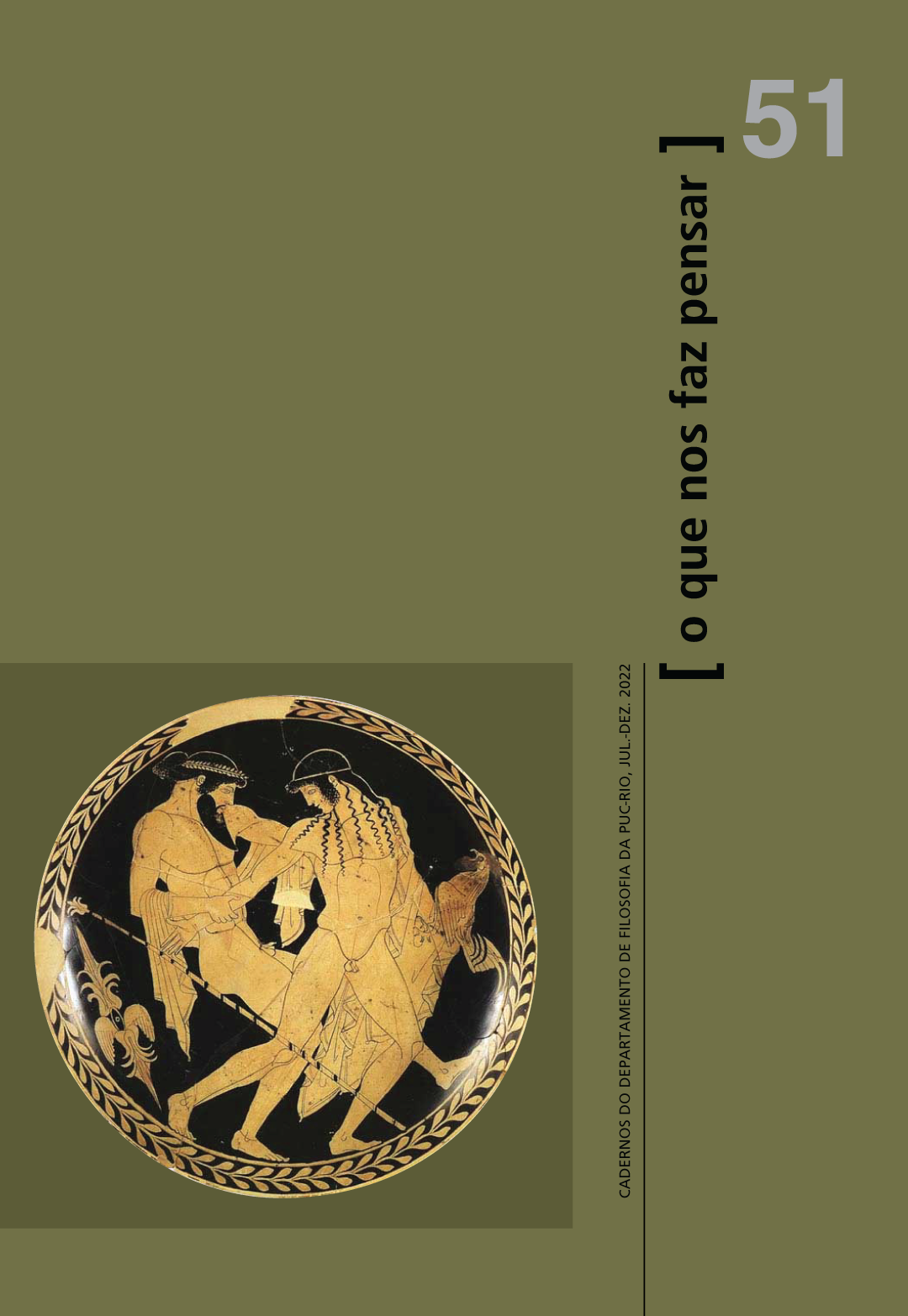Eros’ ardil: desire in Anne Carson
Main Article Content
Abstract
This article aims to investigate the concept of desire in the work of the Canadian writer Anne Carson, based mainly, but not only, on an analysis of the essay Eros the bittersweet. Even though the essay is devoted to the description of how poets of the Greek melic tradition fabled love and desire, with a prominent place for Sappho in this description, the hypothesis to be tried out here is that there is, within Carson, an attempt at a metaphysical, or at least relatively ahistorical description of desire, which serves as basis for the studying the erotic emotional event in her subsequent works. Finally, the article also proposes that desire, as conceived by Carson, can substantiate and compensate for Western politics and civilization, as well as the colonial concept of barbarism.
Article Details

This work is licensed under a Creative Commons Attribution-NonCommercial 4.0 International License.
Copyright Notice
The author of the article or book reviews submitted and approved for publication authorizes the editors to reproduce it and publish it in the journal O que nos faz pensar, with the terms “reproduction” and “publication” being understood in accordance with the definitions of the Creative Commons Attribution-NonCommercial 4.0 International license. The article or book reviews may be accessed both via the World Wide Web – Internet (WWW – Internet), and in printed form, its being permitted, free of charge, to consult and reproduce the text for the personal use of whoever consults it. This authorization of publication has no time limit, with the editors of the journal O que nos faz pensar being responsible for maintaining the identification of the author of the article.
References
AGAMBEN, G. Homo Sacer. O poder soberano e a vida nua. Trad. Henrique Burigo. Belo Horizonte: Editora UFMG, 2007. p. 9-10.
ARISTÓTELES. Política. Trad. Antonio Campelo Amaral e Carlos de Carvalho Gomes. Lisboa: Vega, 1998.
CALAME, C. Eros na Grécia Antiga. Trad. Isa Etel Kopelman. São Paulo: Perspectiva, 2013.
CARSON, A.; EURÍPIDES. Grief Lessons. Four plays. Euripides. New York: New York Review of
Books, 2006.
CARSON, A; SÓFOCLES. Antigonick. New York: New Directions, 2012.
CARSON, A. Autobiografia do vermelho. Trad. João Concha e Ricardo Marques. Lisboa: não-edições, 2017.
CARSON, A. Eros the bittersweet. New Jersey: Princeton University Press, 2017.
CARSON, A. “Prefácio a Hécuba” In: CARSON, Anne; EURÍPIDES. Grief lessons. Trad. Anne Carson. New York: New York Review of Books, 2006.
CARSON, A. “O gênero do som.” Trad. Marília Garcia. Serrote, São Paulo, n. 34, p. 114-136, 2020.
GAGNEBIN, J-M. “Eros da distância”. In: Limiar, aura e rememoração: ensaios sobre Walter Benjamin. São Paulo: Editora 34, 2013.
HESÍODO. Teogonia: a origem dos deuses. Trad. Jaa Torrano. São Paulo: Iluminuras, 1991.
KAFKA, F. “O pião.” In: Narrativas do espólio: 1914-1924. Trad. Modesto Carone. São Paulo: Companhia das letras, 2002.
LACAN, J. O seminário, livro 8: a transferência, 1960-1961. Trad. Dulce Duque Estrada. Rio de Janeiro: Zahar, 2010.
OLIVA NETO, J. O Livro de Catulo. São Paulo: Edusp, 1996.
PARR, J. “A Dignifying Shame: On Narrative, Repetition, and Distance in Anne Carson’s Nox.” Zeitschrift für Anglistik und Amerikanistik. Vol. 62, Issue 4 (December 2014): 341-358
PLATÃO. O Banquete. Trad. Carlos Alberto Nunes. Belém: Edufpa, 2011.
SALDANHA, R. “O problema do amor e da distância em Anne Carson”. Veritas. Porto Alegre, v. 66, n. 1, p. 1-15, jan.-dez. 2021.

